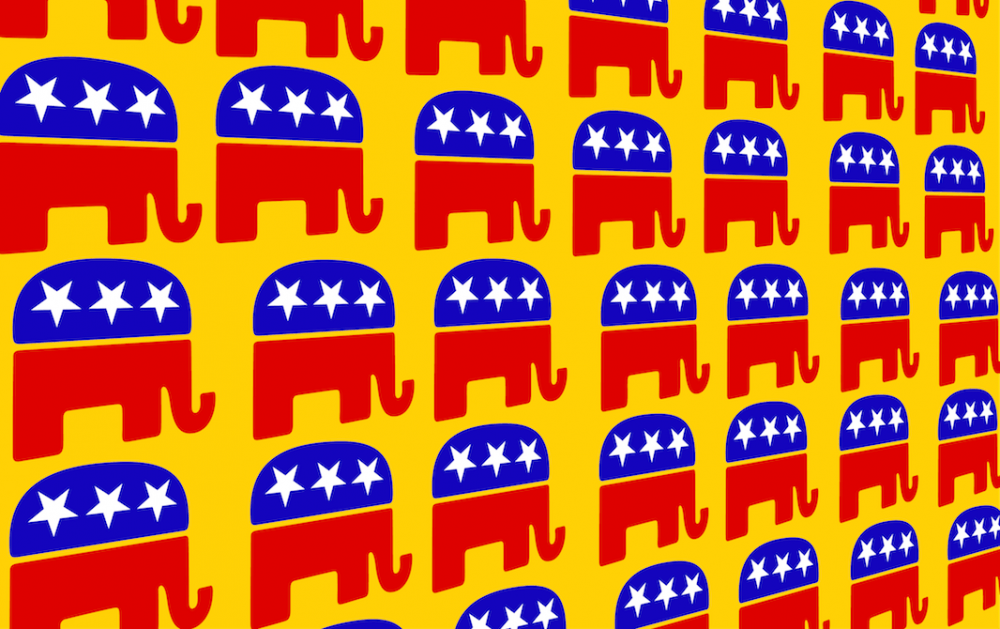Aristotle is purported to have once said that those who are educated differ from the uneducated as much as the living from the dead. However, what happens when the perception of what a valuable education is falls along party lines?
A recent article by The New York Times has brought renewed attention to one of ASU’s most recently created schools, the School of Civic and Economic Thought and Leadership. The school is anything but orthodox, describing itself on its homepage as a “new kind of program” that explores questions of “life, freedom, and governance.”
While that doesn’t sound dangerous by itself, the content of the curriculum is much more interesting.
Almost all of its courses focus on classical works and early American political philosophy, including those concerning political thought and leadership during the American Revolution, classical political philosophy and how economists since the time of Adam Smith have dealt with issues arising from the “goal of economic progress.”
Although I have no problem with the teaching of any of those subjects and think they are vital subjects for those going into relevant fields, there is one big problem with this major: the school politicizes otherwise non-political subjects.
It can be hard to distinguish how exactly if the school and its courses are oriented toward one stream of political thought; perceptions of political liberalism and conservatism in any classroom is often subjective. A syllabus cannot encapsulate an entire class and its framing and teaching of delicate political issues.
I think whether the school is right-wing or not, there is no doubt that it had right-wing origins. The debate over the legislation that effectively created the school broke upon party lines, with Republicans largely being in favor and Democrats largely against in the original 2016 budget debates that created the major.
It doesn’t help that the school features two think tanks, the Center for Political Thought and Leadership and the Center for the Study of Economic Liberty, which have received grants from the Charles Koch Foundation, whose namesake has been heavily involved in a variety of spending on behalf of Republican candidates across all levels of government.
In an era where college campuses are seemingly more divided politically than any time in recent memory, keeping classrooms as open to other views as possible is as important as ever.
Although popularly called one of Arizona’s two “freedom schools” (along with UA’s Department of Political Economy and Moral Science), I fear more that it could soon be popularly known as one of ASU’s conservative schools, discouraging non-conservative students from taking part.
Volker Benkert, an assistant professor of history in the School of Historical, Philosophical and Religious Studies, said he believes the basic premise of the school’s creation, which he describes as the belief that conservative thought has no place in academia, is fundamentally flawed.
“Many of our colleagues are libertarian, some are conservatives, and yes, maybe liberals are somewhat overrepresented,” Benkert said. “But there is certainly no effort to only hire people with whom we agree, or even ask about their political convictions.”
Paul Carrese, school director of SCETL, denies many of the accusations leveled at the school, both in the New York Times article and a recent piece in the The Chronicle of Higher Education.
While Carrese describes his school’s curriculum as “intellectually conservative,” (with a focus on the classics and an older, Socratic style of education and debate), he denies that it is politically partisan or right-wing in nature.
In terms of the actual creation of the school, Carrese did not deny that the school was created primarily out of a feeling among state Republicans that there was a “conformism or intellectual orthodoxy,” becoming dominant in the social sciences and humanities departments of most university campuses. But he said they are beyond that now and have tried to build a solid “academic unit” that ASU could continue to support, even in the case that the Arizona Legislature rescinds the annual funding.
“We may have had a political beginning, but the legislature and the governor have not done anything more than set it in motion,” Carrese said. “Nobody outside the University is telling the University what to do.”
For now, there seems to be a certain level of distrust among many faculty members about the school, hurling accusations that SCETL leadership will forever deny. However, If Carrese says that the school is separate from its right-wing creation, then it needs to act on that notion.
That starts with going out of its way to attain political support from Democrats in the Arizona Legislature; the school's partisan nature will be sealed in the public memory as long as only one party even wants it in existence. The school also needs to make it clear, both in words and in curriculum, to students of all political persuasions that they are welcome.
There should be no such thing as a right-wing or left-wing education. The ultimate goal of any knowledge acquisition is to become more knowledgable, developing into a better citizen to ultimately create a more just world.
If SCETL wants to be a valuable part of our educational institution, it has to make sure it is ensuring the academic freedom and support of students from all political persuasions: left, right, and indifferent.
Reach the columnist at Marinodavidjr@gmail.com or follow @Marinodavidjr on Twitter.
Editor’s note: The opinions presented in this opinion blog are the author’s and do not imply any endorsement from The State Press or its editors.
Like The State Press on Facebook and follow @statepress on Twitter




